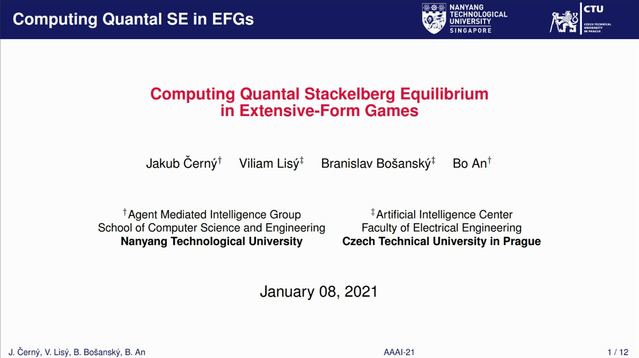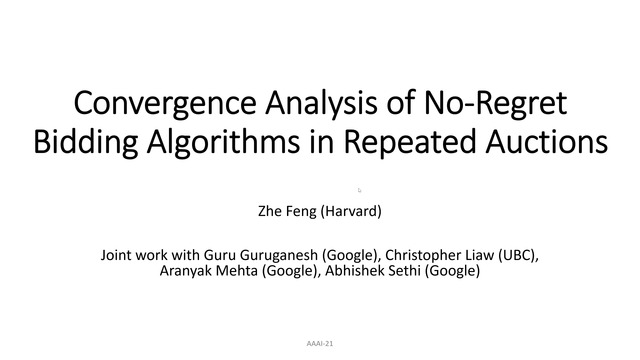Abstract:
Adversarial training, a special case of multi-objective optimization, is an increasingly prevalent machine learning technique: some of its most notable applications include GAN-based generative modeling and self-play techniques in reinforcement learning which have been applied to complex games such as Go or Poker. In practice, a <i>single</i> pair of networks is typically trained in order to find an approximate equilibrium of a highly nonconcave-nonconvex adversarial problem. However, while a classic result in game theory states such an equilibrium exists in concave-convex games, there is no analogous guarantee if the payoff is nonconcave-nonconvex. Our main contribution is to provide an approximate minimax theorem for a large class of games where the players pick neural networks including WGAN, StarCraft II and Blotto Game. Our findings rely on the fact that despite being nonconcave-nonconvex with respect to the neural networks parameters, these games are concave-convex with respect to the actual models (e.g., functions or distributions) represented by these neural networks.









































